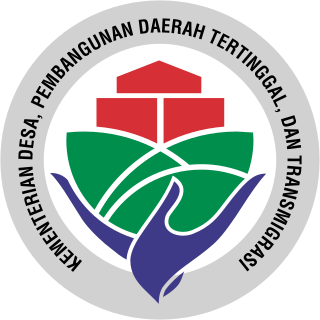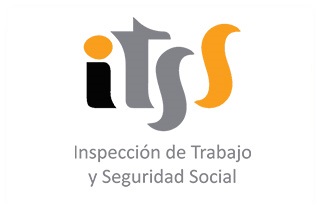The Ministry of Overseas Indian Affairs (MOIA) was a ministry of the Government of India. It was dedicated to all matters relating to the Indian diaspora around the world.

Law enforcement in Ethiopia is dealt with by the Ethiopian Federal Police at federal level and by regional police commissions in the Regions of Ethiopia. The Ethiopian Federal Police (EFP) was established in 1995 to serve the public, to ensure the observation of human and democratic rights and to maintain the safety and welfare of the public. Its stated duties are the enforcement of laws and safeguarding constitutional guarantees, the prevention, detection and investigation of crime, the coordination of national state police commissions and development of national policing standards. The EFP also has to provide operational support to regional police commissions.
However, local militias also provide local security largely independent of the police and the Ethiopian military. Corruption is a perennial problem, particularly among traffic police who solicited bribes.
The U.S. Department of State states that its contacts within the Ethiopian government report that the findings of investigations into abuses by local security forces, such as arbitrary detentions and beatings of civilians, are rarely made public. However, the Ethiopian government continued its efforts to train police and army recruits in human rights. During 2008 the government was seeking assistance from the International Committee of the Red Cross, the local non-governmental organization Prison Fellowship Ethiopia (JFA-PFE), and the Ethiopian Human Rights Commission to improve and professionalize its human rights training and curriculum. The JFA-PFE provided human rights training for police commissioners and members of the militia in 2008.

The Federal Public Service Foreign Affairs, Foreign Trade and Development Cooperation is the foreign affairs ministry of Belgium and is responsible for Belgian foreign policy, relations with the European Union, development cooperation policy and certain aspects of foreign trade policy. The central government in Brussels directs the network of diplomatic and consular representations abroad.
The trade unions of Ethiopia have a total membership of approximately 300,000. Over 203,000 are members of the Confederation of Ethiopian Trade Unions (CETU).
Te Puni Kōkiri is the principal policy advisor of the Government of New Zealand on Māori wellbeing and development. Te Puni Kōkiri was established under the Māori Development Act 1991 with responsibilities to promote Māori achievement in education, training and employment, health, and economic development; and monitor the provision of government services to Māori. The Māori name means "a group moving forward together".
The Ministry of Labour & Employment is one of the oldest and most important Ministries of the Government of India. This is an India's federal ministry which is responsible for enforcement of labour laws in general and legislations related to a worker’s social security. The Ministry aims to create a healthy work environment for higher production and productivity and to develop and coordinate vocational skill training and employment. However, Skill Development responsibilities, such as Industrial Training and Apprenticeship responsibilities were transferred to the Ministry of Skill Development and Entrepreneurship from 9 November 2014. The Ministry launched the National Career Service portal on 20 July 2015 to help bridge the gap between job providers and job seekers.

The Ministry of Education, Youth and Sport is the government ministry responsible for promoting and regulating education, youth and sport development, in Cambodia.

The Ministry of the Interior (MIR) is a department of the Government of Spain responsible for public security, the protection of the constitutional rights, the command of the law enforcement agencies, national security, immigration affairs, prisons, civil defense and road traffic safety. Through the Undersecretariat of the Interior and its superior body, the Directorate-General for Internal Policy, the Ministry is responsible for all actions related to ensuring political pluralism and the proper functioning of electoral processes.
The Federal Ministry of Labour and Employment is the Nigerian Federal Ministry concerned with relations between workers and employers. It is headed by the Minister of Labour and Employment, who is appointed by the President, and is assisted by a Permanent Secretary, who is a career civil servant.

The Ministry of Industry and Tourism (MINCOTUR) is the department of the Government of Spain responsible for the proposal and execution of the government policy on industry, trade and tourism, including among its competences the industrial development and of the SMEs, the promotion and defense of the industrial property, the commercial policy of internationalization and of investments and external transactions, as well as the politics of tourism and the rest of competences and attributions that the legal system attributes to it. Likewise, in coordination with the Foreign Ministry is responsible for the international cooperation on this matters.
Ethiopia is a source country for men, women, and children subjected to trafficking in persons, specifically conditions of forced labor and forced prostitution. Girls from Ethiopia's rural areas are forced into domestic servitude and, less frequently, commercial sexual exploitation, while boys are subjected to forced labor in traditional weaving, gold mining, agriculture, herding, and street vending. Small numbers of Ethiopian girls are forced into domestic servitude outside Ethiopia, primarily in Djibouti and Sudan. While Ethiopian boys are subjected to forced labor in Djibouti as shop assistants and errand boys.

The Ministry of Labour and Social Economy (MITES) is the department of the Government of Spain responsible for planning and carrying out the government policy on labour relations and social economy.
A ministry of social affairs or department of social affairs is the common name for a government department found in states where the government is divided into ministries or departments. While there is some variation in the responsibilities of such ministries, the common thread between them is their responsibility for assisting members of society who are in a vulnerable position for example due to age, dependence on government aid, or being the employee in an employee/employer relationship. Ministries of this type cover matters such as social work, social protection and assistance, pensions, welfare, health and social security, and workplace standards for employees

The Ministry of Finance of Saudi Arabia is the principal body for controlling state expenditure in Saudi Arabia. It is currently led by Mohammed Al-Jadaan.

The Ministry of Education, Vocational Training and Sports (MEFPD) is the department of the Government of Spain responsible for proposing and carrying out the government policy on education and vocational training, including all the teachings of the education system except university education, without prejudice to the competences of the National Sports Council in matters of sports education. Likewise, it is also the responsibility of this Department the promotion of cooperation actions and, in coordination with the Ministry of Foreign Affairs, the promotion of international relations in the field of non-university education.

The Ministry of Villages, Development of Disadvantaged Regions, and Transmigration is a government ministry in charge for assisting the President in regards to developing the rural and disadvantages areas in Indonesia. Through its community development, it would help to speed up the development of villages. It's also the responsible for the Transmigration Program.

The Ministry of Manpower of the Republic of Indonesia is a government ministry responsible for the workers and labour laws of Indonesia. The minister is currently Ida Fauziyah since 23 October 2019.

The Labour and Social Security Inspectorate (ITSS) is a Spanish autonomous agency in charge of the control of the compliance with labour and social security legislation. It also offers technical advice and, where appropriate, conciliation, mediation and arbitration in these matters. The ITSS is, therefore, the apex of the Labour and Social Security Inspection System.
The Ministry of Science and Higher Education was the Ethiopian government ministry established in 2018 which has a responsibility to lead the development of science, higher education, and the technical and vocational education and training (TVET) in the country. It established by proclamation number 1097/2018 in October 2018. Hirut Woldemariam is the prior by leading the ministry since its foundation to August 2020. Samuel Urkato was the Minister of Science and Higher Education from August 2020 to October 2021, when it was merged into the Ministry of Education.

The Ministry of Social Affairs and Labour is the main authority administrating labour affairs and social matters, including labour inspection, and a department of the Government of Syria.












